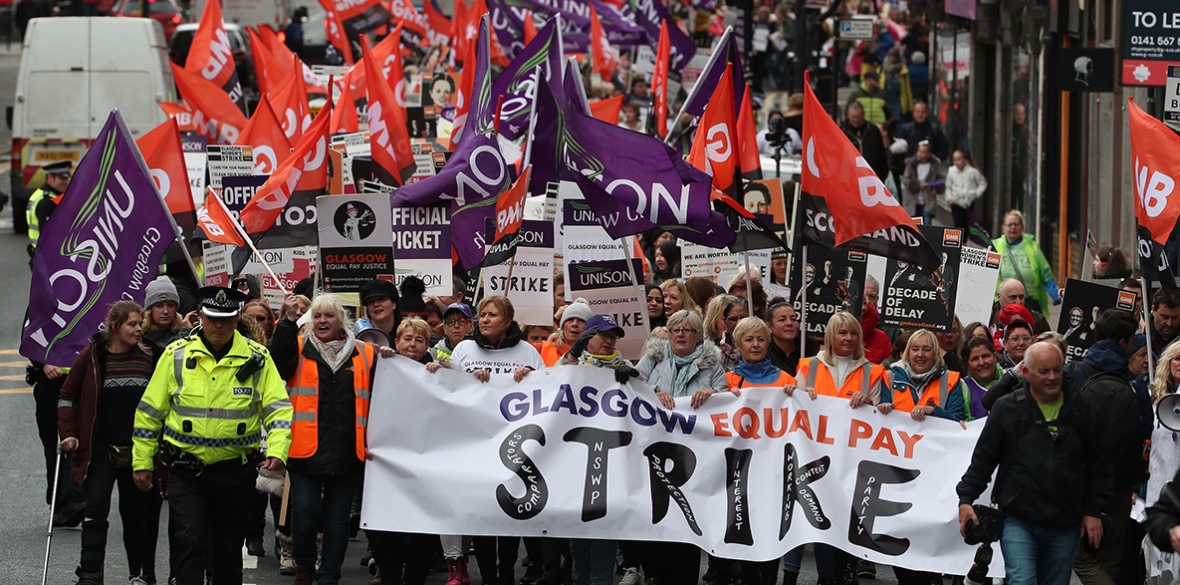This is the last article you can read this month
You can read more article this month
You can read more articles this month
Sorry your limit is up for this month
Reset on:
Please help support the Morning Star by subscribing here
UNIONS have welcomed the fourth consecutive annual rise in membership, announced today by the Office for National Statistics.
The 120,000-member increase last year brought total union membership to 6.6 million, 400,000 more than in 2016, but half the 13.2 million peak reached in 1979, when the notoriously anti-union Thatcher government was elected.
TUC general secretary Frances O’Grady said that the Covid pandemic had “brutally exposed the terrible working conditions and insecurity many workers face,” and that thousands had turned to unions during the crisis to protect their jobs, safety and rights.
“Unions can play a key role in helping the country recover from this pandemic by supporting good, green jobs and working with employers to level-up pay and conditions across Britain,” Ms O’Grady said.
Campaigning think tank Resolution Foundation noted that union density had risen to 23.7 per cent of the workforce, driven by rising employment in the public sector.
Dan Tomlinson, a senior economist at the foundation, said that the figures gave the lie to the idea that union membership was in terminal decline, but pointed out that just 5 per cent of hospitality workers were unionised.
Institute for Employment Rights (IER) director Carolyn Jones urged support for the Status of Workers Bill, introduced into the House of Lords on Wednesday by IER chairman Lord John Hendy, arguing that union membership would be far higher if vulnerable workers did not face the constant threat of dismissal.
“John’s Bill aims to restore workplace rights, particularly to workers in the gig economy who have little or no protection against bosses who hire and fire at will and impose zero-hours contracts, leaving millions without a guaranteed regular wage,” Ms Jones told the Morning Star.
General union GMB said that the increase in union membership, and its own recognition deal struck this week with private hire company Uber, showed that “the world of work is changing and employers need to change with it.”
The union’s acting general secretary Warren Kenny said: “Our ground-breaking recognition agreement with Uber provides a blueprint for digital organising and is proof that unions are more relevant than ever across the economy.”
National Association of Head Teachers general secretary Paul Whiteman said that its membership had risen “significantly,” as school leaders “have turned to their union for support and guidance at a time when that has been in short supply from government.”











